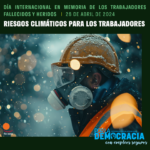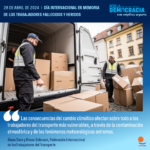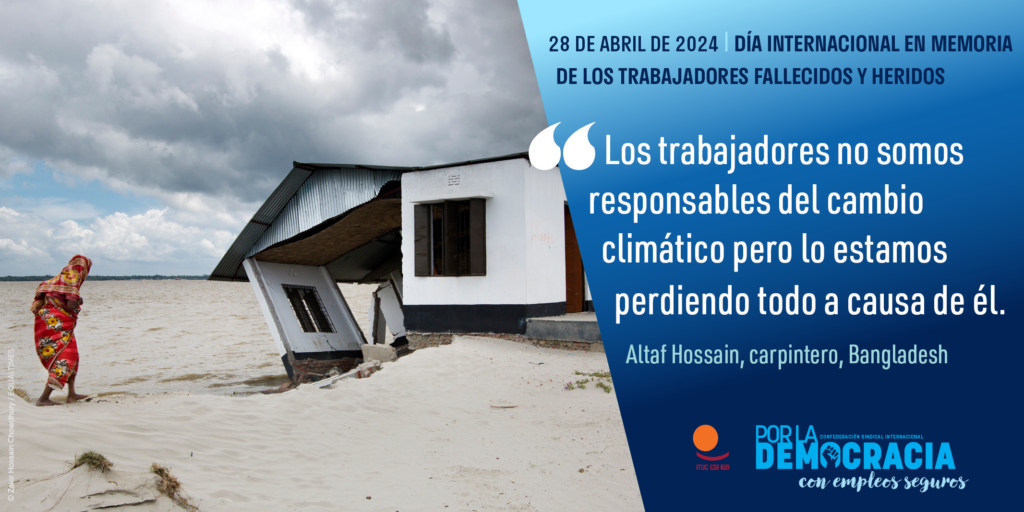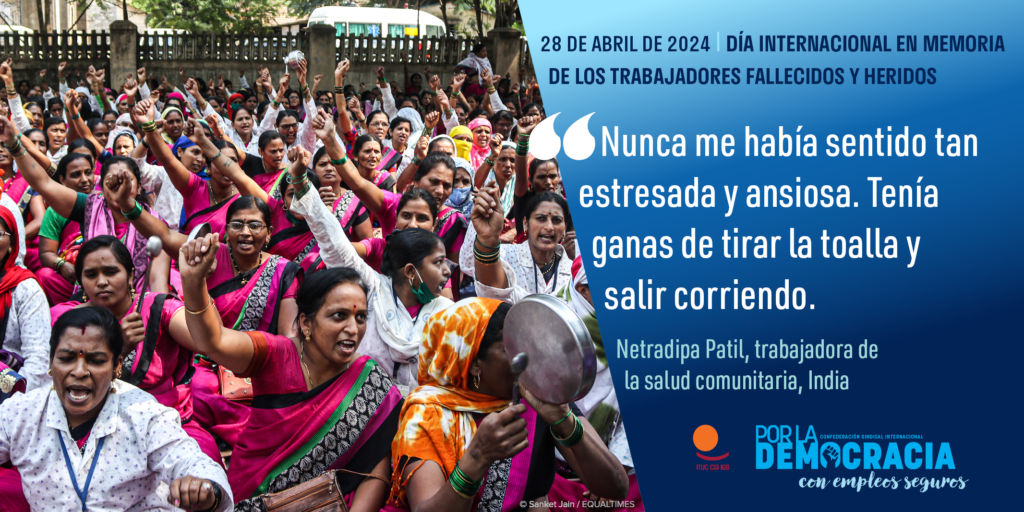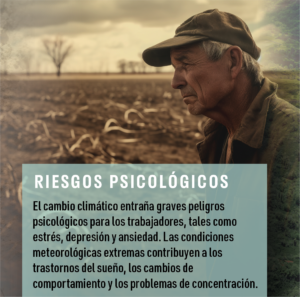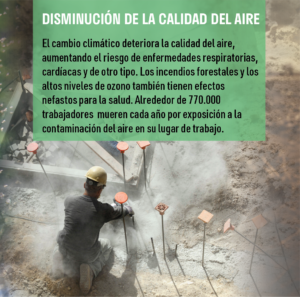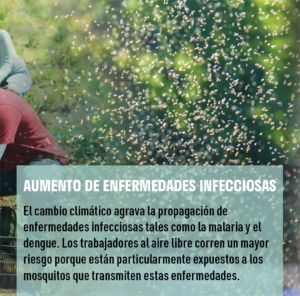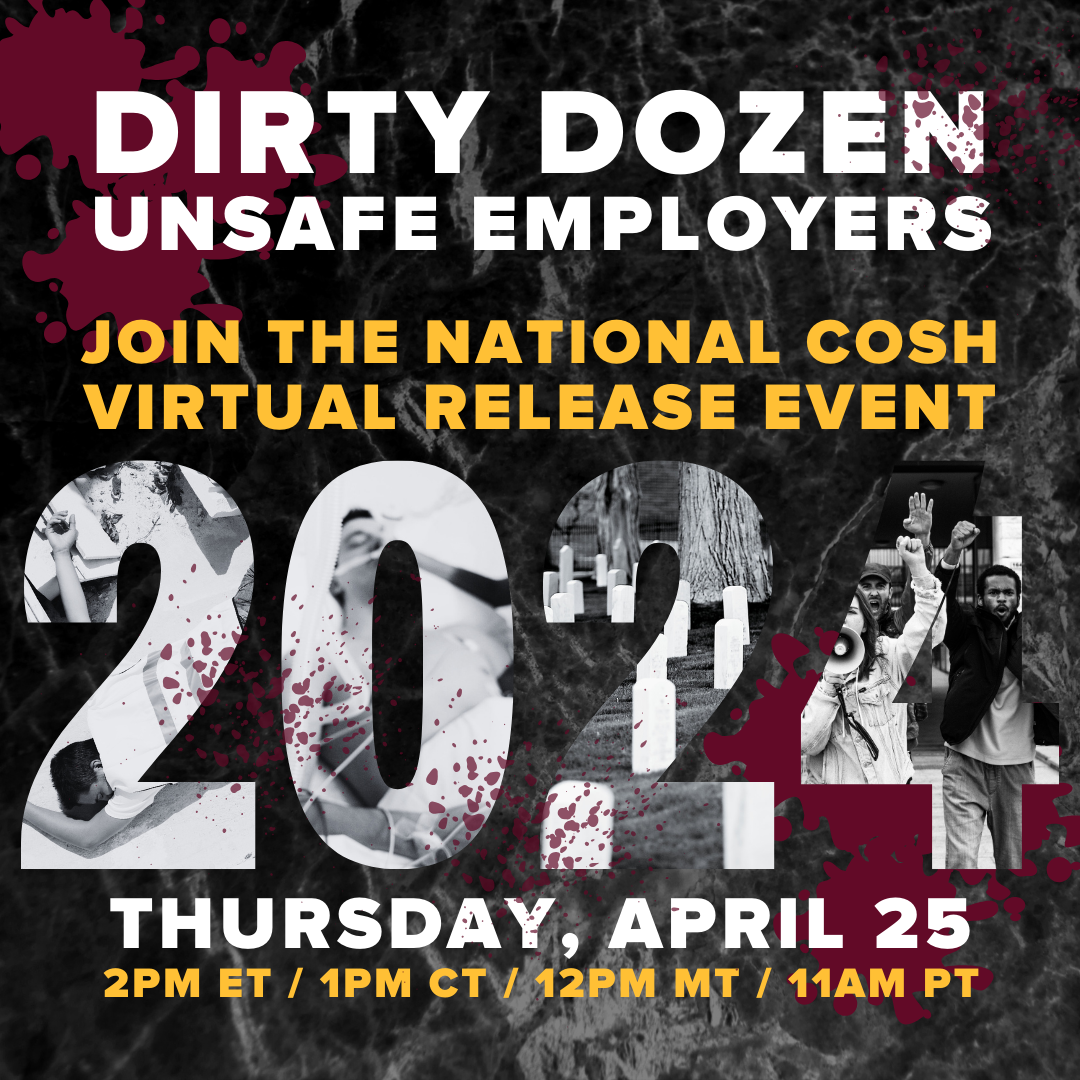As part of its commemoration of this year’s International Workers’ Memorial Day, the Building and Wood Workers’ International (BWI) has launched a comprehensive series of Hazards briefers to raise awareness among workers on how to protect themselves while on the job and to advocate for healthy and safe workplaces across the globe. This is part of BWI’s continuing proactive initiative to prioritise the health and safety of workers worldwide.
This is part of BWI’s continuing proactive initiative to prioritise the health and safety of workers worldwide.
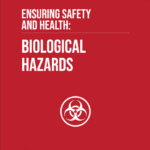
First in its series of hazard briefers is on Biological Hazards such as infections, allergies, or poisoning caused by biological agents like bacteria, viruses, fungi, and toxins.
BWI stresses that the construction and woodworking industries carry significant risks and hazards, spanning from falls and exposure to hazardous substances to incidents involving heavy machinery. Consequently, BWI aims for its hazard briefings to be utilised by trade unionists and workers at large to disseminate critical safety information, empower them to advocate for their own safety, and advocate for improved working conditions. These briefings, directed at both workers and employers, underscore the substantial responsibility employers bear in maintaining safe workplaces. They serve to facilitate more constructive dialogues between trade unions, worker representatives, employers, government entities, and policymakers to establish more robust safety regulations.
BWI’s hazard briefers cover a wide range of topics, including but not limited to:
- Fall Prevention: Providing guidelines and best practices to minimise the risk of falls from heights, a common hazard in construction sites.
- Safety Equipment Usage: Educating workers on the proper use of personal protective equipment (PPE) such as helmets, gloves, and harnesses to ensure maximum protection on the job.
- Chemical Safety: Informing workers about the potential hazards of exposure to harmful chemicals commonly used in construction and woodworking, along with measures to safely handle and store these substances.
- Machinery Safety: Offering guidance on the safe operation of heavy machinery and power tools to prevent accidents and injuries.
- Emergency Preparedness: Equipping workers with the knowledge and skills to respond effectively to emergencies such as fires, collapses, or medical incidents on construction sites.
As the construction and woodworking industries continue to evolve and expand, it is imperative that safety remains a top priority.
Through initiatives like the hazard briefers launched by BWI and the commitment of employers to implement in internationally-sanctioned safety measures, trade unions can strive towards a future where every worker returns home safely at the end of each working day.
https://www.bwint.org/cms/bwi-launches-series-of-hazard-briefers-to-ensure-workplace-safety-3110

